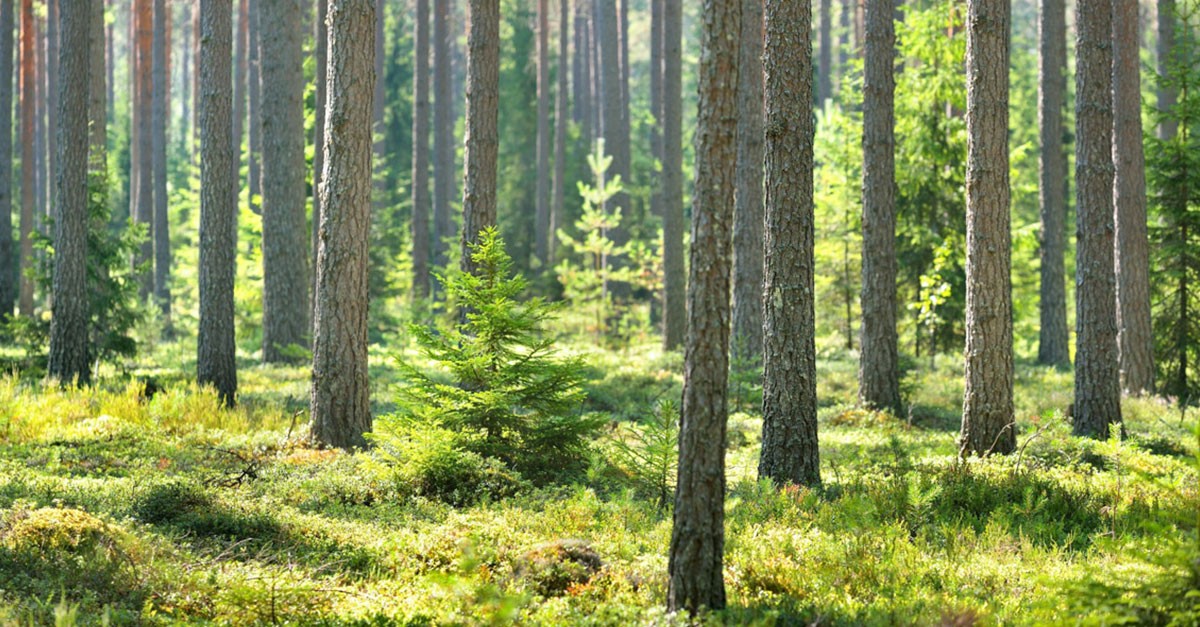Daycare educators in Finland laid out grass, planted forest undergrowth (such as dwarf heather and blueberries), and let children tend to crops in planter boxes. According to a Finnish study, one month of playing among the vegetation and debris in a small forest may be sufficient to alter a child's immune system.
The development of daycares' own "forests" in Finland affected the immune systems of the children there.
The diversity of microorganisms in young children's stomachs and on their skin appeared healthier in a very short period of time when daycare employees laid out a grass, planted forest undergrowth (such as dwarf heather and blueberries), and let them tend to crops in planter boxes.
The 3-, 4-, and 5-year-olds at these greened-up daycare centres in Finland showed higher T-cells and other crucial immunological indicators in their blood within 28 days compared to other city kids who play in typical urban daycares with yards of tarmac, tile, and gravel.
When the study's findings were released in 2020, environmental scientist Marja Roslund from the University of Helsinki said, "We also discovered that the intestine microbiota of kids who had greenery was similar to the intestinal microbiome of kids visiting the forest daily."
Early exposure to green space has been associated with having a healthy immune system, although it is still unclear if this association is causal.
The Finnish study is the first to deliberately alter a child's urban environment before testing for changes in the microbiome, which in turn affects the child's immune system. The results, while not conclusive, do support a key hypothesis, namely that a shift in ambient bacteria can relatively readily impact a child's established microbiome, aiding the child's immune system in the process. The "biodiversity hypothesis" holds that having a diverse environment has an impact on our immunity. According to that theory, the recent surge in immune-related disorders may be at least in part due to a loss of biodiversity in urban areas.
The authors of the study stated that their findings "confirm the biodiversity hypothesis" and the idea that a lack of variety in the modern living environment may result in an immune system that is untrained and subsequently increases the occurrence of immunological-mediated disorders. 75 children between the ages of three and five were cared for by 10 different urban daycares, and the study examined the environmental microorganisms found in each yard. Four of these daycares had their yards updated with grass and forest undergrowth, while the other two took the children outside every day for nature time. Some of these daycares had normal urban yards with concrete and gravel.
Children from these final four daycares had access to their new backyard five times per week for the following 28 days.
In comparison to the first group of children who spent the same amount of time playing in daycares with less greenery, the researchers observed improved outcomes when they checked the microbiota of their skin and gut before and after the trial. Researchers discovered that even during the brief time of the study, the diversity of the microorganisms on the skin and within the stomachs of kids who frequently played in green spaces had increased—a characteristic linked to a generally stronger immune system.
Their outcomes largely resembled those of the second group of daycare children who went on daily nature outings. Among kids who got outside – playing in the dirt, the grass, and among the trees – an increase in a microbe called gammaproteobacteria appeared to boost the skin's immune defence, as well as increase helpful immune secretions in the blood and reduce the content of interleukin-17A, which is connected to immune-transmitted diseases.
"This supports the assumption that contact with nature prevents disorders in the immune system, such as autoimmune diseases and allergies," said Sinkkonen.
The findings need to be confirmed by larger studies conducted in other parts of the world because they are not yet definitive. The advantages of green places, however, seem to extend beyond our immune systems. Research shows getting outside is also good for a child's eyesight, and being in nature as a kid is linked to better mental health. Some recent studies have even shown green spaces are linked to structural changes in the brains of children.
It's unclear what's causing these amazing results yet. It might have something to do with inhaling clean air, soaking up the sun, exercising more, or having more peace of mind. It might also be related to immune system alterations. It can be quite challenging to account for every environmental component that affects our health in research due to the complexity of the real world. While rural children tend to have fewer cases of asthma and allergies, the available literature on the link between green spaces and these immune disorders is inconsistent.
The research here had a small sample size, only found a correlation, and can't account for what children were doing outside daycare hours, but the positive changes seen were enough for scientists in Finland to offer some advice. "It would be best if children could play in puddles and everyone could dig organic soil," explained environmental ecologist Aki Sinkkonen, also from the University of Helsinki. "We could take our children out to nature five times a week to have an impact on microbes."
The changes are simple, the harms low, and the potential benefits widespread.
Bonding with nature as a kid is also good for the future of our planet's ecosystems. Studies show kids who spend time outdoors are more likely to want to become environmentalists as adults, and in a rapidly changing world, that's more important than ever. Just make sure everyone has received their tetanus shots, advised Sinkkonen.
Science Advances published the study. This item has previously been published in October 2020.
Reference:
Daycares in Finland Built Their Own 'Forests', And It Changed Kids' Immune Systems, Science Alert, 21 September 2021







 The Australian Government is rolling out unannounced spot checks across Early Childhood Education and Care (ECEC) services nationwide. This follows a successful pilot in October–November
The Australian Government is rolling out unannounced spot checks across Early Childhood Education and Care (ECEC) services nationwide. This follows a successful pilot in October–November ***WARNING: DISTRESSING CONTENT*** Victorian detectives have laid 83 additional charges against former Melbourne childcare worker Joshua Dale Brown, expanding the total number of alleged offences
***WARNING: DISTRESSING CONTENT*** Victorian detectives have laid 83 additional charges against former Melbourne childcare worker Joshua Dale Brown, expanding the total number of alleged offences In April 2025, the Fair Work Commission (FWC) issued a provisional decision recommending staged award increases to address the undervaluation of early childhood educators; however,
In April 2025, the Fair Work Commission (FWC) issued a provisional decision recommending staged award increases to address the undervaluation of early childhood educators; however, Recent commentary has highlighted a striking statistic: 90% of new childcare providers in Australia are run for profit. This raises a fundamental question is this
Recent commentary has highlighted a striking statistic: 90% of new childcare providers in Australia are run for profit. This raises a fundamental question is this Regulatory authorities across Australia have identified staffing as a priority area, with a strong focus on ensuring educators hold valid, authentic qualifications. Unfortunately, fraudulent certificates
Regulatory authorities across Australia have identified staffing as a priority area, with a strong focus on ensuring educators hold valid, authentic qualifications. Unfortunately, fraudulent certificates